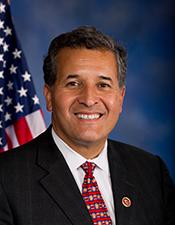0
0
0
Tax-Free Pell Grant Act
12/31/2022, 4:58 AM
Summary of Bill HR 4173
Bill 117 HR 4173, also known as the Tax-Free Pell Grant Act, is a piece of legislation introduced in the US Congress. The main purpose of this bill is to make Pell Grants tax-free for recipients. Pell Grants are federal financial aid awarded to low-income undergraduate students to help cover the cost of their education.
Under current law, Pell Grants are considered taxable income, which means that recipients must report the grant as income on their tax returns. This can result in higher tax liabilities for students who receive Pell Grants, reducing the overall benefit of the grant.
The Tax-Free Pell Grant Act seeks to address this issue by exempting Pell Grants from federal income tax. This would provide much-needed relief to low-income students who rely on Pell Grants to finance their education. By making Pell Grants tax-free, the bill aims to ensure that students can fully benefit from the financial assistance provided by the grants. Supporters of the bill argue that making Pell Grants tax-free will help reduce the financial burden on low-income students and make higher education more accessible and affordable. They believe that this change will encourage more students to pursue higher education and ultimately improve their economic prospects. Opponents of the bill may argue that making Pell Grants tax-free could have negative implications for the federal budget, as it would reduce tax revenue. They may also raise concerns about the potential impact on other federal financial aid programs. Overall, the Tax-Free Pell Grant Act is aimed at providing much-needed financial relief to low-income students and making higher education more accessible. It will be important to monitor the progress of this bill as it moves through the legislative process to see if it ultimately becomes law.
Under current law, Pell Grants are considered taxable income, which means that recipients must report the grant as income on their tax returns. This can result in higher tax liabilities for students who receive Pell Grants, reducing the overall benefit of the grant.
The Tax-Free Pell Grant Act seeks to address this issue by exempting Pell Grants from federal income tax. This would provide much-needed relief to low-income students who rely on Pell Grants to finance their education. By making Pell Grants tax-free, the bill aims to ensure that students can fully benefit from the financial assistance provided by the grants. Supporters of the bill argue that making Pell Grants tax-free will help reduce the financial burden on low-income students and make higher education more accessible and affordable. They believe that this change will encourage more students to pursue higher education and ultimately improve their economic prospects. Opponents of the bill may argue that making Pell Grants tax-free could have negative implications for the federal budget, as it would reduce tax revenue. They may also raise concerns about the potential impact on other federal financial aid programs. Overall, the Tax-Free Pell Grant Act is aimed at providing much-needed financial relief to low-income students and making higher education more accessible. It will be important to monitor the progress of this bill as it moves through the legislative process to see if it ultimately becomes law.
Congressional Summary of HR 4173
Tax-Free Pell Grant Act
This bill excludes from gross income, for income tax purposes, any amount received as a federal Pell Grant. It also expands the definition of qualified tuition and related expenses under the American Opportunity and Lifetime Learning tax credit to include computer or peripheral equipment (up to a maximum of $1,000), child and dependent care expenses, and course materials.Read the Full Bill
Current Status of Bill HR 4173
Bill HR 4173 is currently in the status of Bill Introduced since June 25, 2021. Bill HR 4173 was introduced during Congress 117 and was introduced to the House on June 25, 2021. Bill HR 4173's most recent activity was Referred to the House Committee on Ways and Means. as of June 25, 2021
Bipartisan Support of Bill HR 4173
Total Number of Sponsors
1Democrat Sponsors
1Republican Sponsors
0Unaffiliated Sponsors
0Total Number of Cosponsors
160Democrat Cosponsors
154Republican Cosponsors
6Unaffiliated Cosponsors
0Policy Area and Potential Impact of Bill HR 4173
Primary Policy Focus
TaxationPotential Impact Areas
- Child care and development
- Computers and information technology
- Education of the disadvantaged
- Educational technology and distance education
- Higher education
- Income tax credits
- Income tax exclusion
- Student aid and college costs
- Teaching, teachers, curricula
Alternate Title(s) of Bill HR 4173
To amend the Internal Revenue Code of 1986 to extend and modify the American Opportunity Tax Credit, and for other purposes.
Tax-Free Pell Grant Act
Tax-Free Pell Grant Act
Comments
Sponsors and Cosponsors of HR 4173
Latest Bills
National Defense Authorization Act for Fiscal Year 2026
Bill S 1071December 13, 2025
Enduring Justice for Victims of Trafficking Act
Bill S 2584December 13, 2025
Technical Corrections to the Northwestern New Mexico Rural Water Projects Act, Taos Pueblo Indian Water Rights Settlement Act, and Aamodt Litigation Settlement Act
Bill S 640December 13, 2025
Incentivizing New Ventures and Economic Strength Through Capital Formation Act of 2025
Bill HR 3383December 13, 2025
BOWOW Act of 2025
Bill HR 4638December 13, 2025
Northern Mariana Islands Small Business Access Act
Bill HR 3496December 13, 2025
Wildfire Risk Evaluation Act
Bill HR 3924December 13, 2025
Energy Choice Act
Bill HR 3699December 13, 2025
ESTUARIES Act
Bill HR 3962December 13, 2025
Improving Interagency Coordination for Pipeline Reviews Act
Bill HR 3668December 13, 2025
Expand American Educational Opportunity Act of 2021
Bill HR 4174December 31, 2022




